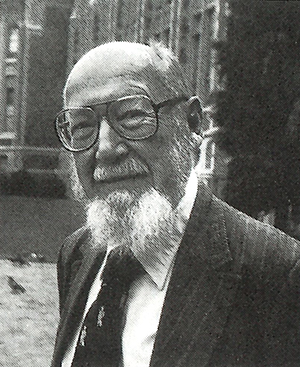Arthur Bestor, constitutional law expert, dies at 86
 Arthur Bestor, one of the nation’s leading authorities on constitutional law and a UW history professor from 1962 to 1976, died Dec. 13, 1994, of lung cancer at his Seattle home. He was 86.
Arthur Bestor, one of the nation’s leading authorities on constitutional law and a UW history professor from 1962 to 1976, died Dec. 13, 1994, of lung cancer at his Seattle home. He was 86.
He was especially known for his research into “communitarian” or Utopian societies, such as the Oneida Community, that flourished in the 19th century.
His books and articles about those societies were influential, particularly Backwoods Utopia, which was awarded the Alfred Beveridge Prize by the American Historical Association.
Bestor was also devoted to education, and was a founding member and past president of the Council for Basic Education. Two other of his well-known writings, Educational Wastelands and The Restoration of Learning, explored what he called the “sterility” of American pre-collegiate education.
He wrote extensively about the extent of congressional power in setting foreign policy, and frequently testified before Congress on the Senate’s authority to make treaties. A devoted teacher, he was also one of the first constitutional scholars to call for President Nixon’s resignation. “He was outraged at Nixon’s violation of constitutional powers,” recalled Otis Pease, a colleague in the history department.
Outside the classroom, Bestor was known as an energetic man who loved photography and travel. His energy often had his family out of breath, says his wife, Dorothy. “He walked our family off our feet, always wanting to walk another half-mile to see an old church or warehouse.”
Born in Chautauqua, N.Y., he received his bachelor’s and doctorate degrees from Yale. A lifetime member of Yale’s Elizabethan Society, he twice received Fulbright Fellowships and a Guggenheim. He taught at Yale, Columbia, Stanford, Queens College of Oxford Univ., and Southern Indiana Univ. before coming to the UW in 1962.